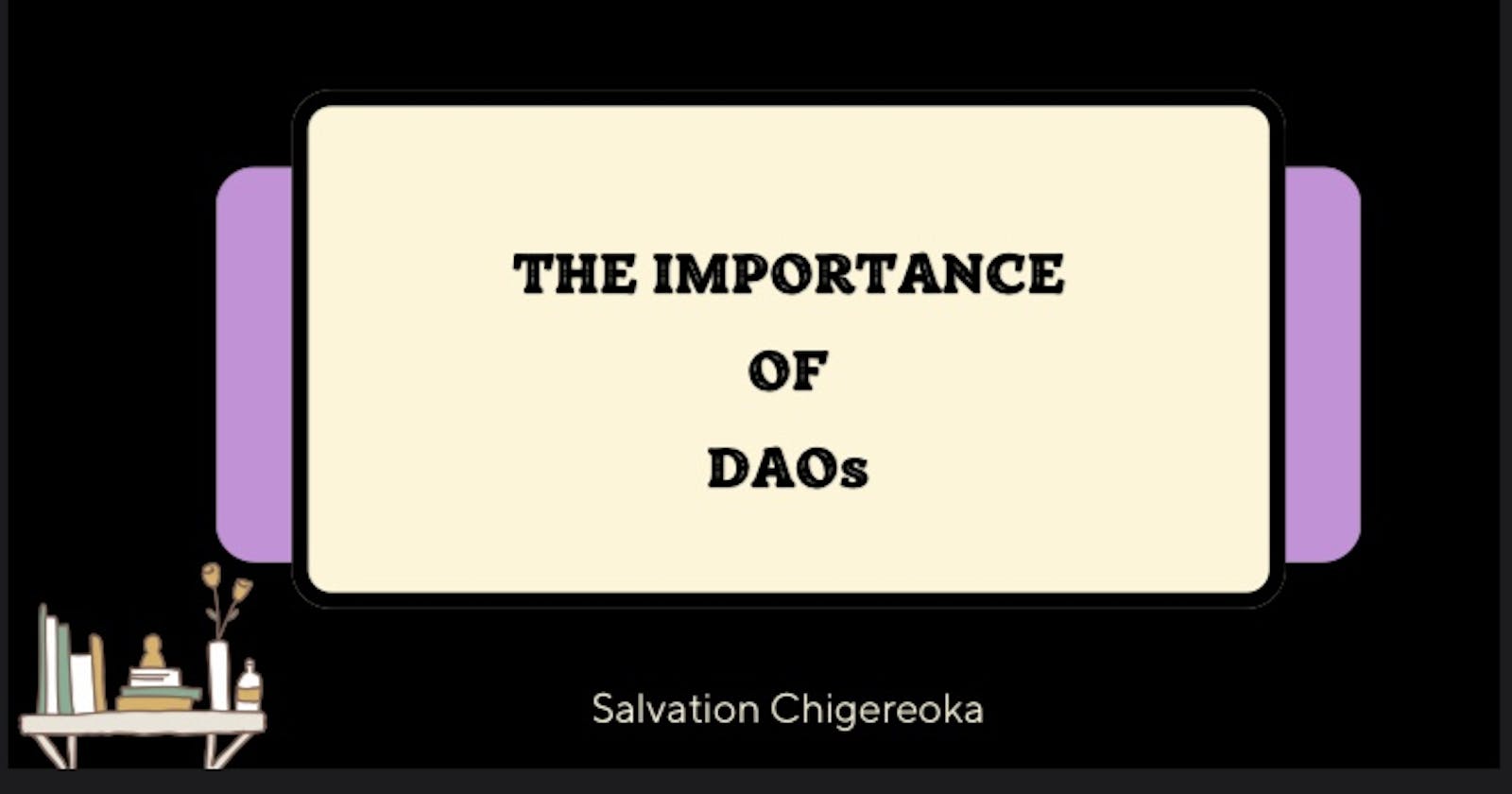Table of contents
PermalinkWhat is DAO
DAO stands for "Decentralized Autonomous Organization." It is a digital organization that operates on a blockchain and is governed by its members through a set of rules encoded in smart contracts. Governance in DAOs refers to the process by which members make decisions and manage the organization. This typically includes proposals, voting, and the execution of decisions through smart contracts. DAOs are often used for decentralized finance (DeFi) and other decentralized applications.
Although DAOs are a new type of organizational structure enabled by blockchain technology, it is changing the organizational culture. Unlike traditional organizations, DAO decision-making processes are based on a set of pre-determined rules encoded into smart contracts.
The emergence of DAOs in the web3 ecosystem is a significant development, as it has the potential to revolutionize the way organizations operate. With traditional organizations, power is centralized in the hands of a select few individuals or groups. This can lead to inefficiencies, corruption, and a lack of transparency. DAOs, on the other hand, are transparent, and accountable, and operate according to a set of predefined rules that cannot be changed by any single individual or group. In this article, we will learn the importance and challenges of DAOs.
PermalinkImportance of DAOs
One of the key advantages of DAOs is their ability to facilitate decentralized decision-making. Traditional organizations rely on a hierarchy of authority, with decisions being made by those at the top. This can lead to slow decision-making and a lack of accountability. In a DAO, however, decisions are made by the community of token holders, who collectively have a stake in the success of the organization. This not only promotes accountability but also allows for a more efficient decision-making process.
Another advantage of DAOs is their ability to facilitate decentralized fundraising. Traditional fundraising methods, such as venture capital and initial public offerings (IPOs), are often exclusive and difficult for the average person to participate in. DAOs, on the other hand, allow anyone with an internet connection to participate in fundraising through the use of Initial Coin Offerings (ICOs) and other blockchain-based fundraising methods.
DAOs also have the potential to create new business models and revenue streams. For example, DAOs can be used to create decentralized marketplaces where buyers and sellers can interact directly without the need for intermediaries. This can lead to lower transaction costs and increased efficiency. Additionally, DAOs can also be used to create decentralized platforms for sharing and renting out underutilized assets, such as cars or real estate.
In addition, DAOs can also be used to create decentralized communities and networks. Traditional communities and networks are often centralized and controlled by a small group of individuals. DAOs, on the other hand, allow for decentralized communities and networks that are controlled by the community as a whole. This can lead to more inclusive and equitable communities and networks.
PermalinkChallenges of DAOs
Despite the potential benefits of DAOs, some challenges need to be addressed. One of the main challenges is the issue of governance. With traditional organizations, governance is centralized and decisions are made by a small group of individuals. In a DAO, however, governance is decentralized and decisions are made by the community as a whole. This can make it difficult to reach a consensus and make decisions.
Another challenge is the issue of scalability. DAOs are still relatively new and there are currently few examples of large-scale DAOs in existence. It is unclear how DAOs will scale as they grow in size and complexity. Additionally, there is also the issue of legal and regulatory uncertainty surrounding DAOs. As DAOs are a new type of organizational structure, there is currently no clear legal framework for their operation.
conclusion
In conclusion, DAOs have the potential to revolutionize the way organizations operate by facilitating decentralized decision-making, decentralized fundraising, and the creation of new business models and revenue streams. However, some challenges need to be addressed, such as governance and scalability. As the web3 ecosystem continues to evolve, it will be interesting to see how DAOs will evolve and how they will ultimately impact the blockchain industry.
